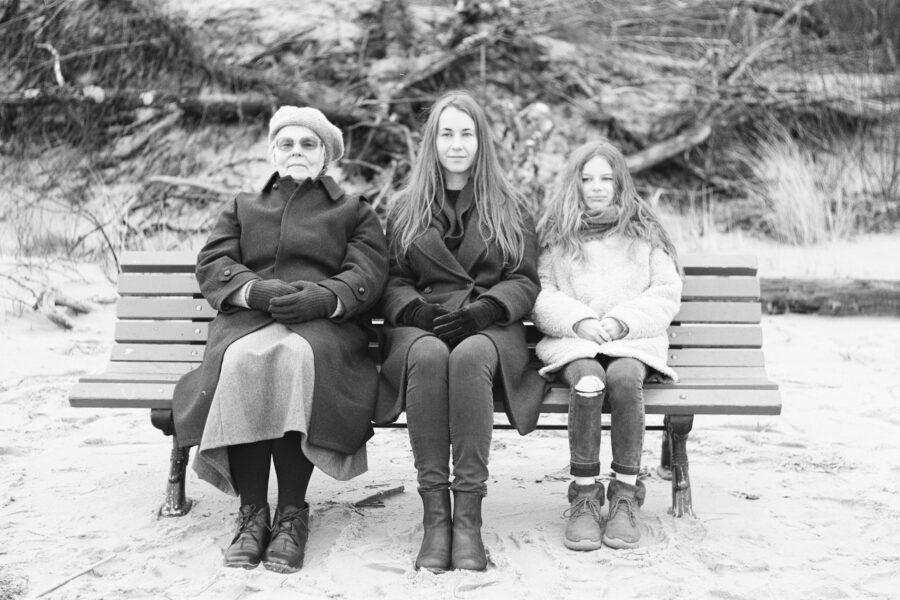Anxiety isn’t always obvious, largely because it manifests in so many different ways.
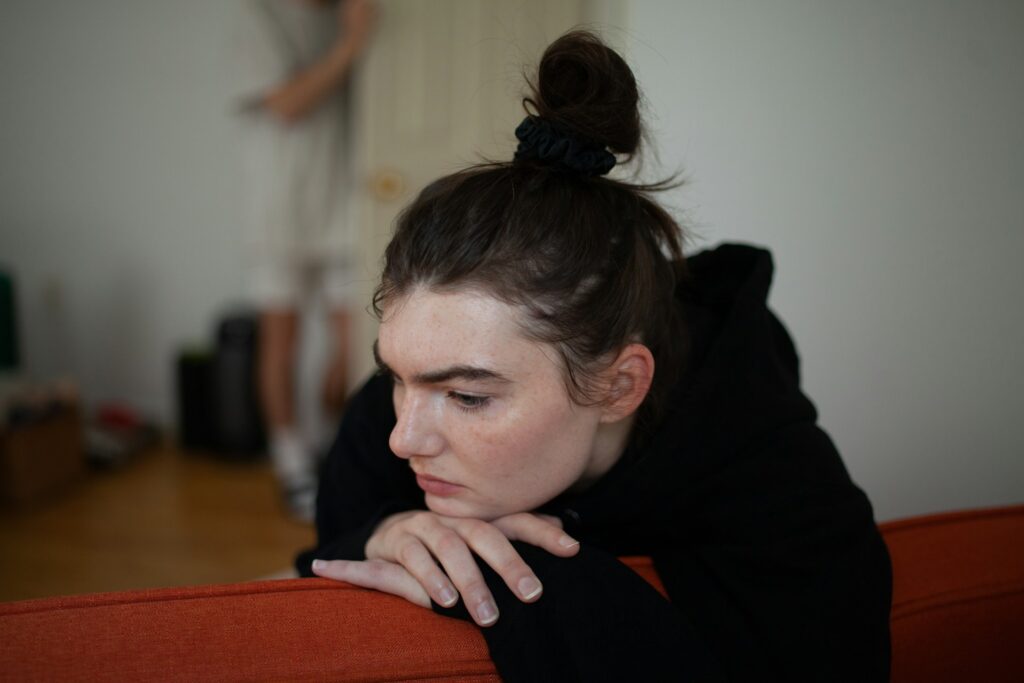
Sometimes it doesn’t show up as worry or fear—it comes out as awkwardness, distance, or even behaviour that looks cold or dismissive. However, a lot of the time, what looks rude on the surface is just someone trying to manage their anxiety without making a big deal out of it. Here are some of the things anxious people tend to do that don’t go over well with everyone else, but that they don’t mean any harm by.
1. They might not make eye contact.

If someone avoids eye contact, it can easily be mistaken for disinterest or shadiness. However, for a person with anxiety, holding eye contact can feel like way too much, like they’re being stared into or read too closely. They’re not being rude; they’re likely just feeling overwhelmed. Looking away is often a way to feel a little more in control during social interactions, not a sign they’re trying to ignore you.
2. They might cancel plans last minute.

Flaking out last-minute can come across as unreliable or thoughtless, especially if it keeps happening. However, for someone with anxiety, the idea of socialising might sound okay in theory and then feel completely impossible the day of. It’s not a reflection of how much they like you—it’s about the mental load they’re carrying. Sometimes they’re simply trying to protect their energy or avoid spiralling, not disrespect your time.
3. They might seem disinterested in small talk.

Casual chat seems harmless, but for someone with anxiety, it can feel like navigating a social minefield. Trying to come up with the right words, worrying about sounding weird, and overanalysing every pause—it’s exhausting. They might go quiet, give short answers, or seem detached. It’s not that they don’t care. It’s that they’re probably stuck in their own head trying to keep it together.
4. They might not respond to messages quickly.
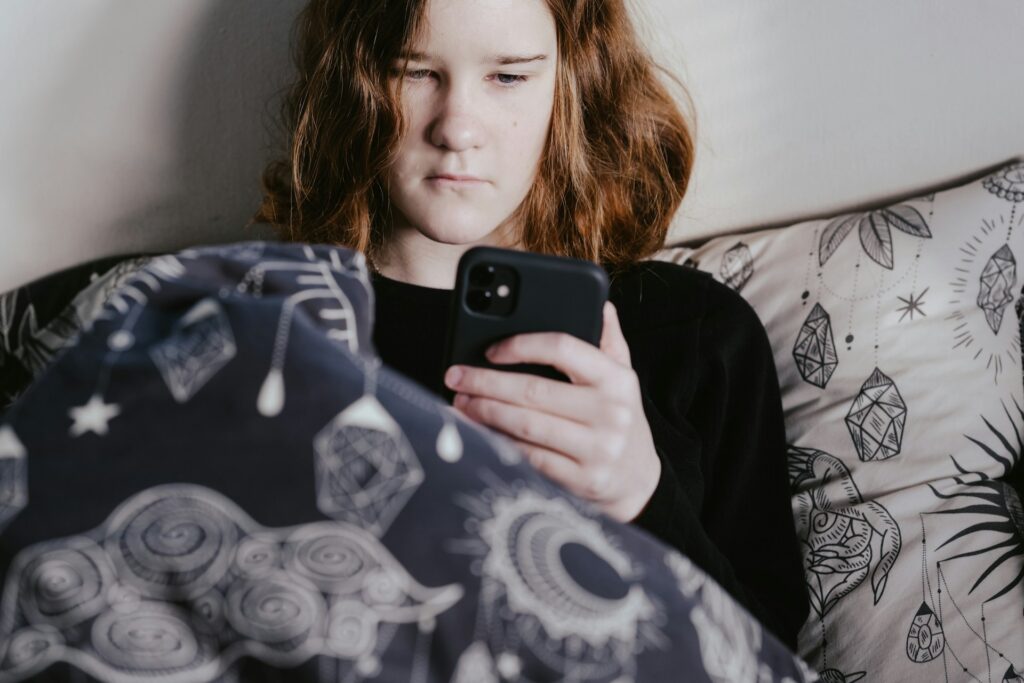
Leaving messages unanswered can look like avoidance or even ghosting. However, sometimes just opening a message when you’re anxious feels like too much, especially if it requires a reply that feels emotionally loaded. They might read it and think about replying for days before they can actually do it. It’s not about playing games or being rude—it’s about needing space before engaging again.
5. They might leave group situations without saying goodbye.

Heading out quietly or disappearing without a proper goodbye might seem like they’re being dismissive, but it’s usually just about not wanting to draw attention to themselves. For someone with anxiety, goodbyes can feel weirdly intense or awkward, and sneaking out might seem like the easiest, least stressful option. It’s not personal; it’s protective.
6. They might turn down invitations regularly.

Consistently saying no to invites can come across like they don’t want to be included or like they’re pushing people away. But the truth is, they probably think about those invitations a lot—they just often don’t have the energy to follow through. Anxiety can make social settings feel unpredictable or overwhelming. Saying no is sometimes the only way they can manage it, even if they really wish they could say yes.
7. They might not initiate conversation.

In friendships or work settings, not being the one to start conversations can seem aloof. However, someone with anxiety might constantly worry that they’re bothering people or saying the wrong thing. They often wait for other people to reach out first because they’re trying not to overstep. It’s not disinterest. It’s cautiousness rooted in overthinking how they come across.
8. They might react defensively to neutral comments.

A casual comment or harmless joke might suddenly trigger a tense or defensive reaction. To someone with anxiety, even neutral words can feel loaded depending on where their brain is that day. They might replay that comment a hundred times after the fact, analysing what it meant. Their response might seem sharp, but it usually comes from a place of self-protection rather than malice.
9. They might avoid phone calls completely.

Letting a call go to voicemail or ignoring it altogether might feel dismissive to other people, but to someone with anxiety, phone calls are a huge source of stress. The pressure to be “on” instantly and respond well in real time is a lot. They’re not ignoring you out of rudeness; they’re probably just buying themselves time to get into the right headspace. Texts give them space to breathe and think clearly before replying.
10. They might need more space than seems reasonable.

Not responding quickly, not making plans for a while, or going a bit quiet can make it seem like they’re losing interest. However, often they’re just trying to recharge, or even recover from the last interaction. Anxiety makes even small social efforts feel draining. It doesn’t mean they don’t value your connection. It just means they need more time alone to stay emotionally steady.
11. They might not show much facial expression.
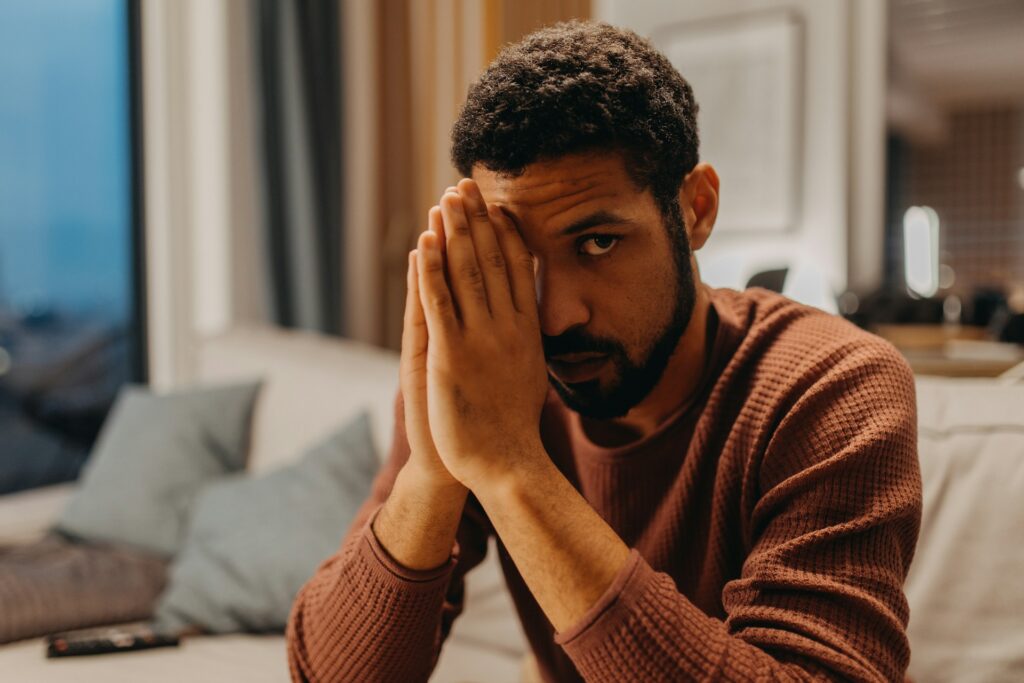
Some people assume a blank expression means boredom or being checked out. Of course, for someone managing anxiety, their body might be in survival mode, which doesn’t leave much energy for smiling or mirroring emotions. They’re often focused on staying grounded and not letting their stress show. It’s not that they’re uninterested; it’s that their internal experience is a lot louder than what’s happening around them.
12. They might interrupt or talk quickly.

Fast talking or cutting someone off mid-sentence can definitely feel rude. With anxiety, though, thoughts come rushing all at once, and there’s this fear of forgetting what you meant to say or not getting a chance to speak again. They’re not trying to dominate the conversation, really. They’re just anxious to get their words out while they still can. It’s usually nerves, not arrogance.
13. They might avoid physical affection or hugs.
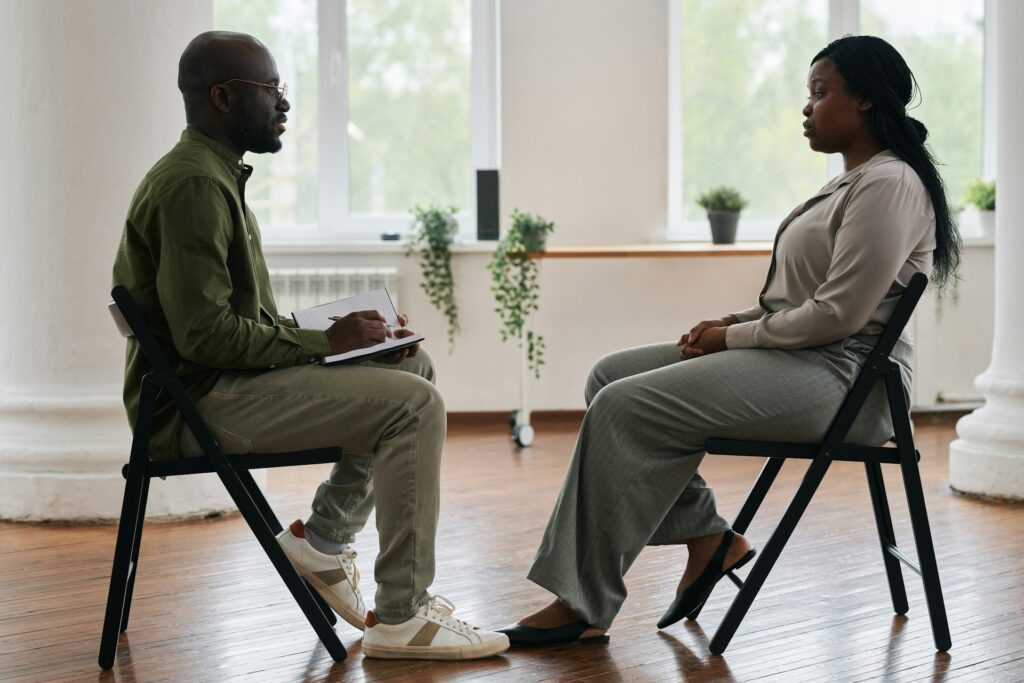
Turning down hugs or leaning away might feel cold or unfriendly. However, for someone with anxiety, especially if they’re sensory-sensitive, physical contact can be really intense or uncomfortable. It doesn’t mean they don’t like you. It just means their boundaries might look different, and it helps when those boundaries are respected without taking it personally.
14. They might laugh or smile at the wrong time.

Nervous laughter or smiling at awkward moments can seem insensitive, especially during serious conversations. However, it’s often just a reflex—an automatic response to stress or discomfort. They’re not making light of the situation—they’re trying to regulate a body that’s reacting in ways they can’t always control. It’s not meant to offend; it’s just one of the ways anxiety leaks through the cracks.


